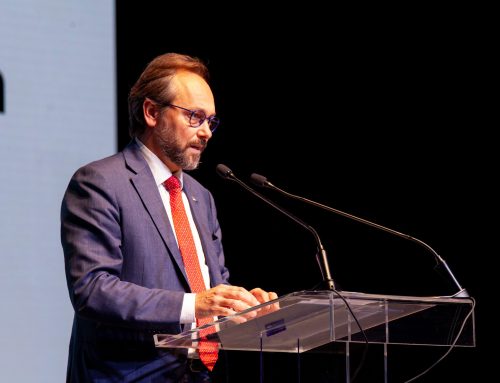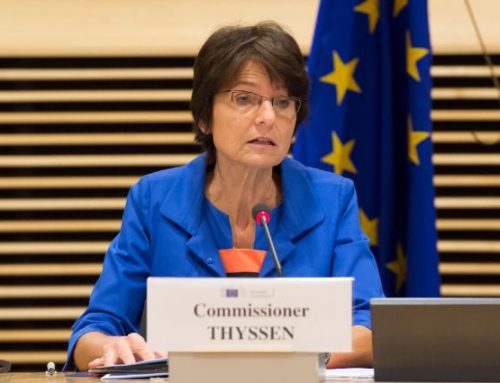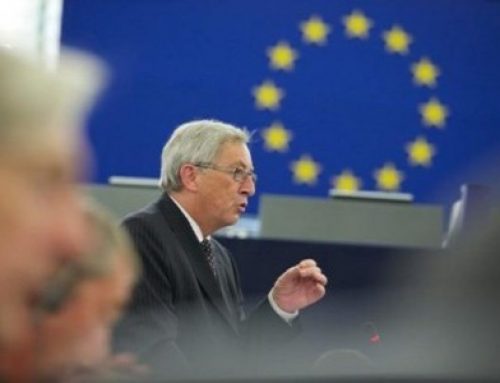News – 11/10/2010 | Speech HoD Vincent Degert
By the internationally accepted definition, corruption is a crime; it consists of abuse of public office for private gain (UN and EU definition). It is an anti-democratic practice which interferes with the Rule of Law and is often a tool for Organized Crime to infiltrate state structures.
Draft Speech
Poštovani Predsedniče Vlade,
poštovana Gospodjo Ministarka,
Predsednice Visokog Saveta I Veća Tužilaca,
Vaša Ekselencijo,
Poštovani učesnici i organizatori,
Veliko mi je zadovoljstvo da učestvujem na današnjoj konferenciji koja ima za temu borbu protiv korupcije i etiku pravosudnih organa kao jedan od glavnih prioriteta borbe za vladavinu prava I jake demokratske institucije
Let me continue in English.
By the internationally accepted definition, corruption is a crime; it consists of abuse of public office for private gain (UN and EU definition). It is an anti-democratic practice which interferes with the Rule of Law and is often a tool for Organized Crime to infiltrate state structures.
Over the year, within the EU, more and more emphasis is put on fighting corruption – the moto is “zero tolerance” and can only be. This clear policy objective is supported by a clear strategy and legal framework; it further involves suitable means across enforcement agencies and judiciary to fight what is considered to be a disease of modern democratic societies.
There is a long list of initiatives, programmes and concrete measures taken at EU level to address this challenge, going back to the 1990’s; but I will leave to the experts to elaborate on them today.
Unfortunately corruption is not an old or an isolated issue; it is present everywhere and requires every state and society to react. The latest EU enlargement and in particular the experience in some new Member States has illustrated both the importance and the complexity of this issue; yet another example is brought by the on-going negotiations for membership with Croatia and the famous benchmarks of the chapter 23. One key Lesson learnt that can be drawn from this experience is that the enlargement countries need to address fight against corruption early in the process.
It is also clear that the fight against corruption has to be successful on both the preventive and repressive side. Let me just mention some key elements for a solid anti-corruption policy:
- Clear and continuous political commitment
- A strong national legal framework which is fully in line with the EU and international standards
- Strong institutions capable of fulfilling their duties and finally
- Concrete and measurable results as proof of efforts invested in pursing this important objective (a convincing track record)
But there is no doubt that a crucial step in the fight against corruption is a thorough reform of the judiciary. The independence of judges and autonomy of prosecutors has to be assured; their work and career development has to remain prevented from undue political influence. There are, again, here two sides of this process:
- on the preventive side, the independence of judges and prosecutors should include a strong ethical component – in order to fulfil their important role in enforcement of anti-corruption policy and measures at national level judges and prosecutors need to be bound by a well developed Code of Ethics as the basis for guaranteeing their integrity.
- on the repressive side, their independence has to be counterbalanced by their accountability – here the issue of the extent of immunity of the judiciary needs to be addressed in this respect.
In Serbia, the Anti-corruption Strategy was adopted in Parliament back in 2005, giving this document the highest importance. Unfortunately, its implementation has not always been up to expectations; many of the measures foreseen by the Action Plan were not fulfilled within the set deadlines.
One of those important measures is indeed the drafting and adoption of ethical codes and integrity plans for the judiciary and prosecution. The fact that this is addressed in this conference today is indeed a welcome first step, as is the participation of all relevant counterparts.
I would like to mention here the two Councils HJC and HPC who are responsible for developing Codes of ethics for judges and prosecutors; I would also like to mention the Anti Corruption Agency which is a central Anti Corruption actor and which has an important role to play in developing guidelines for integrity plans for the judiciary. All have important tasks to fulfil in the near future and I wish them success in their work.
Let me conclude by underlining once again that political will remains the crucial element in the fight against corruption. An expression of such political will is the establishment and the full implementation of credible and realistic strategies and action plans, with clear benchmarks and results to be obtained; these results can then be recognise by the public who should see and perceive that the law applies to all and that no one is above law. I hope that this conference will provide a fruitful exchange of comparative experiences; and also serve to speed up the adoption of one important measure from the anti corruption strategy and the implementing action plan.
Thank you.



